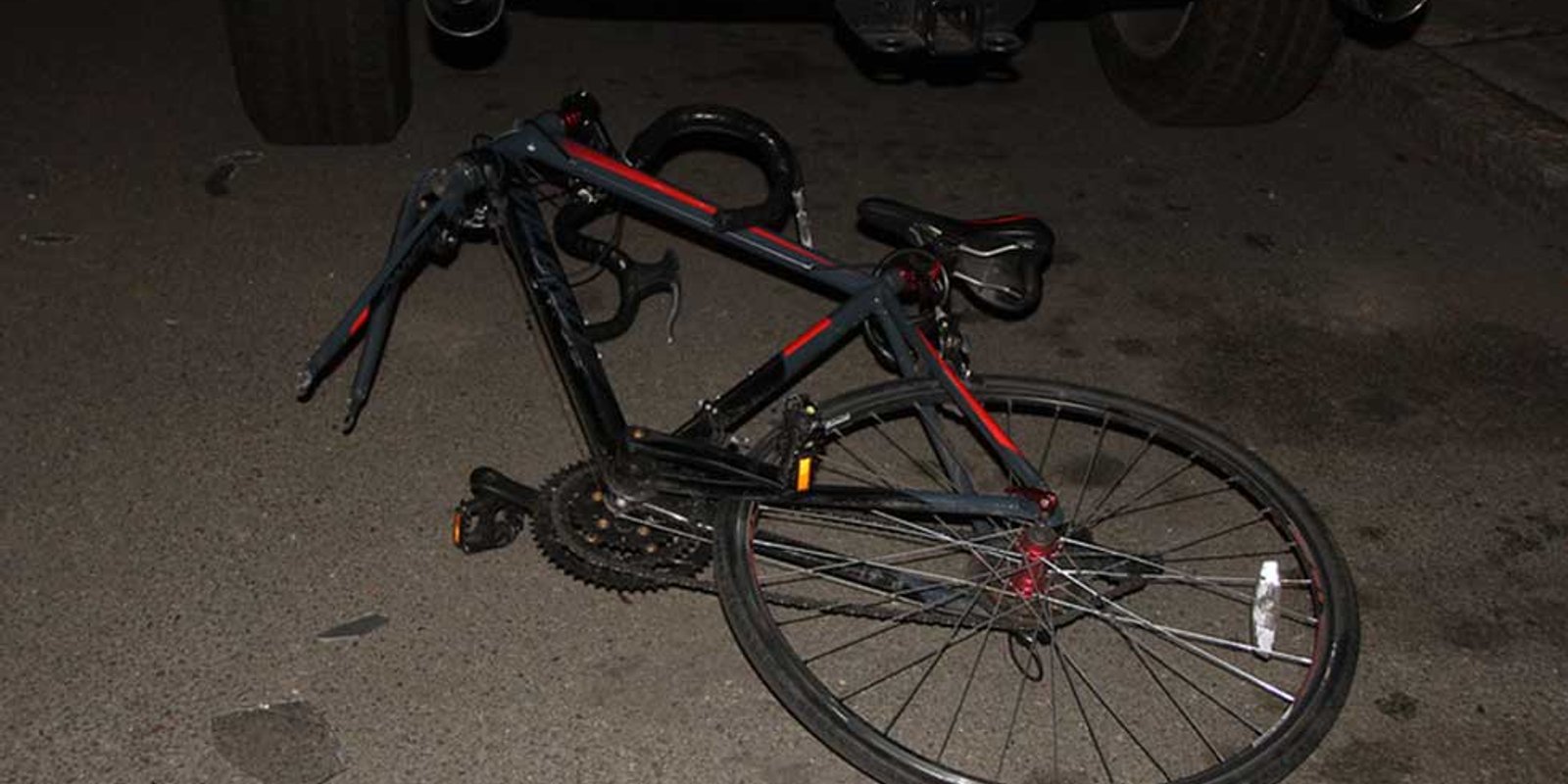What if I was Partially at Fault in My Bicycle Accident?
What if I was Partially at Fault in My Bicycle Accident?
Find Out What You Need to Know if You Were (or May Have Been) Partially At Fault in a Bicycle Accident in Arizona
When you get injured and involved in a bicycle accident case in Arizona, you are entitled to just compensation for your accident-related losses. What constitutes “just” compensation depends on the facts involved. If someone else (i.e., a negligent driver) was fully responsible for the accident, you may be entitled to full compensation for your losses. But, if you were partially at fault in a bicycle accident, this could limit the amount you are entitled to recover.
This is known as the rule of “comparative fault”—and it plays an important role in many bicycle accident cases.
Even though most bicycle accident victims are not responsible for their own injuries, this does not stop the insurance companies from blaming them in many cases. When handling bicycle accident claims, the insurance companies’ goal is to pay as little as possible. If they can minimize their liability by blaming victims for their own injuries, they will.
As a result, if you have a bicycle accident claim in Arizona, it is extremely important to make sure you have a clear understanding of the law. You should not let the insurance companies reduce your compensation unfairly. While Arizona’s comparative fault law will apply in some cases, under no circumstances should you let the insurance companies decide if it applies to yours. Instead, you should seek advice from an experienced Phoenix bicycle accident lawyer who has your best interests in mind.
Arizona’s Law on “Pure Comparative Fault”
Different states have different laws on comparative fault. Fortunately, Arizona has one of the most favorable comparative fault laws in the country for bicycle accident victims and their families. Under Section 12-2505 of the Arizona Revised Statutes:
“The defense of contributory negligence . . . is in all cases a question of fact and shall at all times be left to the jury. If the jury applies [the] defense, the claimant’s action is not barred, but the full damages shall be reduced in proportion to the relative degree of the claimant’s fault which is a proximate cause of the injury or death, if any.”
If you find this confusing, you are not alone. But, while the language of Arizona’s comparative fault law may be difficult to understand, the principles behind the law are actually fairly straightforward. Here’s what you need to know:
- Arizona Follows the Law of “Pure Comparative Fault” – Under Arizona law, accident victims can file a claim regardless of their percentage of fault. Theoretically, even if you were 99 percent at fault in your bicycle accident, you could still file a claim for partial compensation.
- Compensation is Reduced in Proportion to Percentage of Fault – If you were 99 percent at fault in your bicycle accident, you would only be entitled to recover one percent of your losses—and in this scenario filing a claim might not be worth it. But, if you were 50 percent at fault, you would still be entitled to recover 50 percent of your damages from the accident.
- Comparative Fault is a Partial Defense to Liability – Since comparative fault is a defense, this means that it is up to the at-fault party (or the at-fault party’s insurance company) to prove. If there is no evidence that you were partially at fault, you should be able to recover full compensation.
Determining fault and assigning percentages under Arizona’s pure comparative fault law requires a comprehensive investigation. In order to accuse you of being partially responsible for your own injuries, an insurance company must have evidence that proves either: (i) you could have avoided the accident; or, (ii) you could have done something differently to mitigate your injuries.
Never Assume You Were Partially At Fault in a Bicycle Accident
With all of this in mind, under no circumstances should you ever assume that you were partially at fault in a bicycle accident. Never admit fault to the insurance companies, and do not make any decisions about your bicycle accident claim until you consult with a lawyer for your bicycle accident case.
The fact of the matter is that you won’t know exactly why your accident happened until you hire a lawyer to investigate. Even if you think you may have done something wrong, the evidence could still show that the accident was completely beyond your control. While it is important to be honest with yourself and have realistic expectations, it is also important not to make any assumptions that prevent you from asserting your legal rights.
What If You Were Partially At Fault in a Bicycle Accident?
But, let’s say your lawyer’s investigation reveals that you were partially at fault in a bicycle accident. What does this mean for your claim? As noted above, in Arizona, it means you will be limited in how much you can recover. It does not bar you from filing a claim entirely.
When can the insurance companies accuse bicycle riders of being partially at fault in a bicycle accident for their own injuries? Here are 15 scenarios in which Arizona’ pure comparative partially at fault in a bicycle accident rule might apply. Remember, these will not constitute partial fault in all cases; and, even when they do constitute partial fault, they do not prevent bicycle riders and their families from recovering just compensation:
1. Failing to Use Hand Signals
Using hand signals to let drivers know that you are preparing to stop or turn can help keep you safe on the road. But, in some cases, taking a hand off of the handlebars isn’t safe or practical.
2. Failing to Use a Headlight or Rear Reflector
Arizona law requires cyclists to use white headlights and red rear reflectors when riding at night. But, while increasing your visibility can reduce your risk of being hit by a negligent driver, it won’t protect you in all scenarios.
3. Following Too Closely
Following cars or other cyclists too closely can prevent you from stopping in time to avoid a collision. But, if someone else slams on their brakes, or if following closely is safer than being tailgated by someone behind you, you shouldn’t be deemed partially at fault in a bicycle accident.
4. Running a Red Light or Stop Sign
Similar to drivers, cyclists have a responsibility to adhere to the rules of the road, which includes stopping at red lights and stop signs. However, even if you entered an intersection without the right of way, it does not automatically make you partially at fault in a bicycle accident or to blame for your own injuries.
5. Turning or Changing Lanes Without Looking
The same principle applies when it comes to turning or changing lanes without checking. Although this action can pose a danger in certain situations, many times cyclists are forced to make evasive maneuvers to prevent being struck by others. In such cases, they are not necessarily partially at fault in a bicycle accident.
6. Biking Under the Influence (BUI)
What if you were biking under the influence (BUI)? While BUI can also be dangerous, the fact that your faculties may have been impaired does not necessarily mean that you could have avoided the consequences of someone else’s dangerous mistake.
7. Biking While Distracted
Being distracted by looking at your phone or head unit while riding a bike can potentially make you partially at fault in a bicycle accident. This distraction can hinder your awareness of your surroundings and place you in a precarious situation. However, similar to biking under the influence, the mere fact of being distracted does not necessarily mean that you could have completely avoided the accident.
8. Biking While Fatigued
The considerations that apply to biking under the influence and biking while distracted also apply to biking while fatigued. Whether you are nearing the end of a long ride or you are commuting home after a long day at work, fatigue can impair your judgment and physical abilities. But, even if you are struggling on your bike, you could still be involved in an accident due to factors that are entirely beyond your control.
9. Riding In the Road When a Bike Lane or Bike Path is Available
Generally, cyclists should use bike lanes and bike paths when they are available. But, riding in a bike lane or bike path isn’t always the safest option. In many cases, it will still be safer to ride in the road.
10. Riding Too Far to the Left in the Road
Under Arizona law (Section 28-815 of the Arizona Revised Statutes), cyclists are supposed to ride “as close as practicable to the right-hand curb or edge of the roadway” in most circumstances. But, there are still many circumstances when it is appropriate—and necessary—to ride further to the left in your lane.
11. Riding Too Fast for the Conditions or Your Surroundings
Riding too fast for the traffic or road conditions can increase your risk of injury. Likewise, riding at pace on a crowded path or trail can endanger you and those around you. But, just because you were going fast, this doesn’t necessarily mean that you were being negligent—or that the accident wouldn’t have happened anyway.
12. Doing Tricks at a Skatepark or BMX Park
What if you got injured while doing tricks at a skatepark or BMX park? In this scenario, Arizona’s “recreational use” law might apply. But, it also might not. If the park was overcrowded or the obstacles were unsafe, you could have a claim for financial compensation.
13. Riding Recklessly or Engaging in Horseplay
Engaging in reckless riding or horseplay with friends or other riders can increase the likelihood of being partially at fault in a bicycle accident. However, it is important to note that motorists still bear a legal responsibility to prevent accidents. Additionally, accidents can also occur due to bicycle defects, road defects, and various other factors.
14. Not Maintaining Your Bicycle
What if you were partially at fault in a bicycle accident due to inadequate maintenance of your bicycle? For instance, imagine if your brake pads were worn down, and you couldn’t stop in time to avoid a collision. In this scenario, it is difficult to definitively claim that proper maintenance would have completely prevented your injury, as there are multiple factors at play.
15. Not Wearing a Helmet
What if you were partially at fault in a bicycle accident because you were not wearing a helmet? According to Arizona law, helmet use is not mandatory, although certain local jurisdictions may require riders under the age of 18 to wear helmets. While helmets can potentially reduce the severity of injuries in some bicycle accidents, the absence of a helmet does not prevent you from filing a claim if you were partially at fault in a bicycle accident.
What if Your Child Was Partially At Fault in a Bicycle Accident?
While Arizona’s bicycle and traffic laws aim to ensure the safety of adult riders, they place an even greater emphasis on protecting children. These laws recognize that children may be less aware of potential dangers and more susceptible to accidents. For instance, Arizona’s “attractive nuisance” law allows parents to file claims when their children are injured while exploring appealing objects like hills or ramps on someone else’s property.
In such cases, the property owner may be held partially at fault in a bicycle accident, providing a means for compensation for the injured child and their family. It is essential to understand the legal provisions and seek appropriate guidance when navigating claims involving children injured in bicycle accidents.
Of course, just like adults, children make mistakes. They ride past stop signs, they swerve into the road, and they ride out of their driveway without checking for oncoming cars. If your child was partially at fault in a bicycle accident, resulting in their injury, what are your family’s legal rights? We are bicycle accident case experts.
It is crucial not to make assumptions in this situation as well. Even if your child made an uninformed or ill-advised decision and was partially at fault in a bicycle accident, your family still likely has a claim. Firstly, children are not held to the same standards as adults in most cases. Secondly, as mentioned earlier, being partially at fault in a bicycle accident does not prevent victims (or their families) from filing claims under Arizona law.
Discuss Your Legal Rights with a Phoenix Bicycle Accident Lawyer for Free
If you or your child has been injured in a bicycle accident in Arizona, it is crucial to seek legal advice before making any decisions, especially if there is a possibility of being partially at fault in a bicycle accident. Our lawyers can help you make the right decisions; and, if you have a claim, we can fight for the financial compensation you deserve. To learn more in a free, no-obligation consultation, call (480) 634-7480 or tell us how we can reach you online today.











